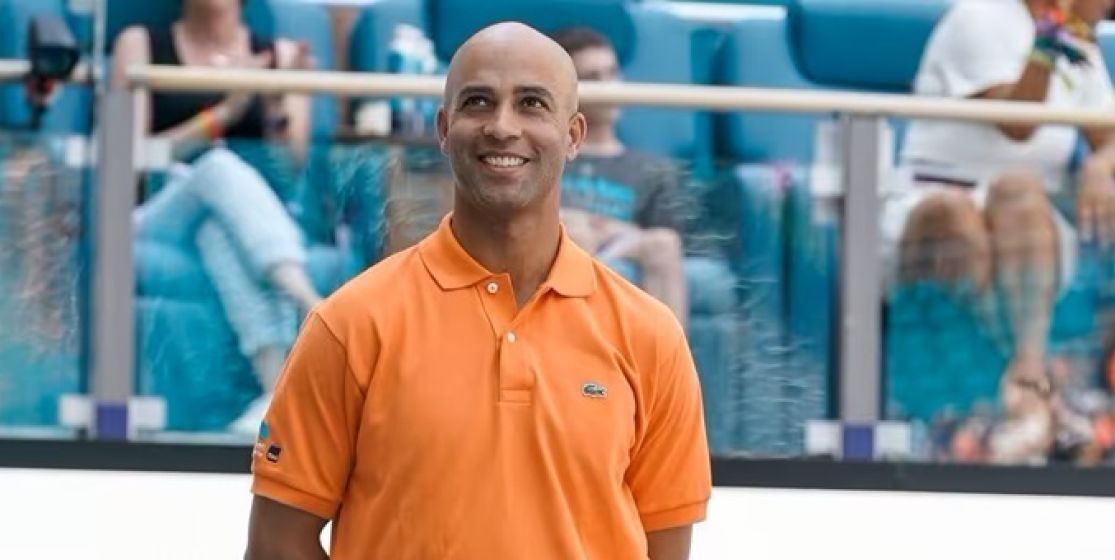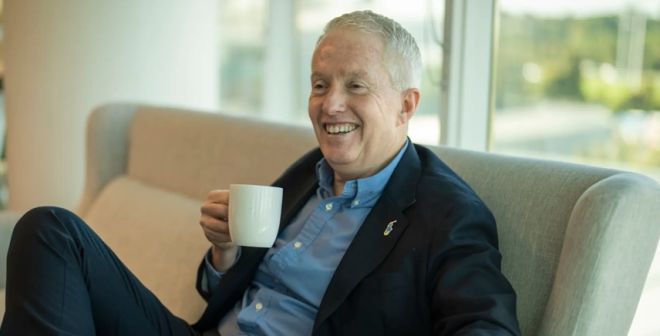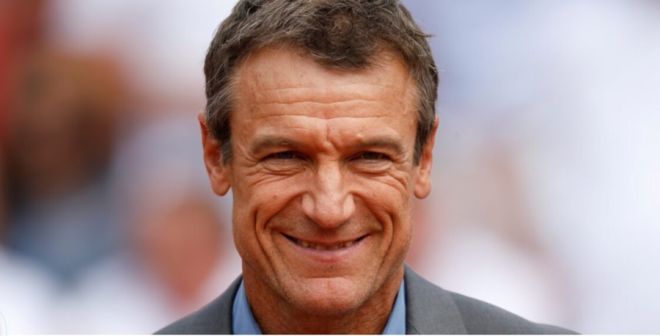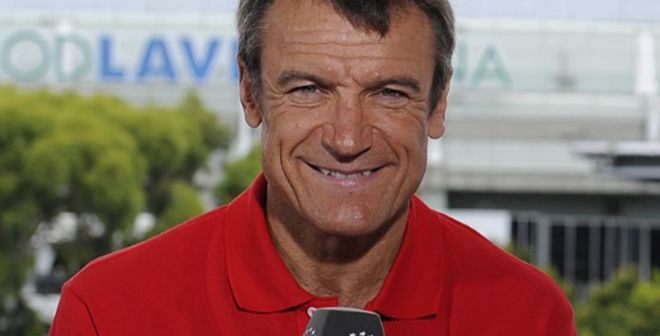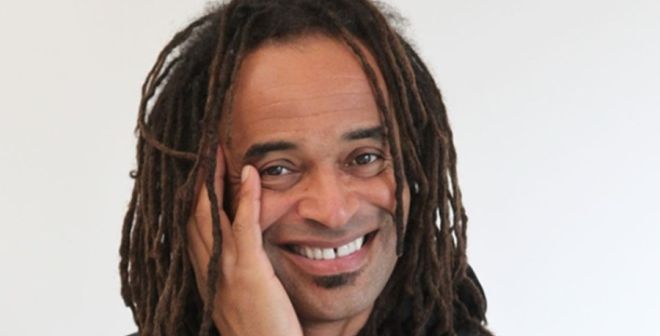Q: The Miami Open and Indian Wells the BNP Paribas Open were both started by tennis champions and now you as a tennis player is carrying on that legacy; daunting or fascinating or interesting or thrilling?
BLAKE: I can say all of those. It’s definitely been a learning experience my first year or two in the job. I can’t say just my first year or two but probably the most learning this first couple of years and now hoping to settle into what I need to do as a tournament director and hopefully still getting better and better at it.
Q: Do you prefer to be called a player or a former player?
BLAKE: It’s not what I prefer, it is what I am. I am a former player. I’m definitely not a tennis player anymore. I live my tennis playing to just what’s on tape.
Q: What’s tougher being a player or a tournament director when you consider the pressures and things like that?
BLAKE: That’s a good question because it’s totally different. When you’re a player it’s all on you, you’re out there by yourself, now you have coaching on court, but back then there was no coaching, it’s you by yourself in front of thousands of people watching. That was a ton of pressure. Now I have a whole team around me that I feel that helps - from the Miami Dolphins to the Hard Rock Stadium people and their whole staff. I feel it’s a little less pressure as I have a full team here.
Q: What do you miss the most as a player and what do you miss the least?
BLAKE: What I miss the most is having the feeling of being ready and prepared – the first day of grand slams, the first day of Masters 1000’s and I’ve done all the hard work and then you get the enjoyment of seeing how you do. You’re ready put in the hard work, let’s see how good I can be and what I can do at these tournaments., Of knowing how prepared I was. The thing I miss the least is living out of a suitcase and living on the road. I know it sounds spoiled because we get to go to such amazing places like Miami, Indian Wells, Paris, London, Rome, Melbourne everywhere around the world. It’s a beautiful but when you’re there for a job you’re not sightseeing; you’re there to go to the courts and the hotel and that’s about it. So, I don’t miss that aspect of it.
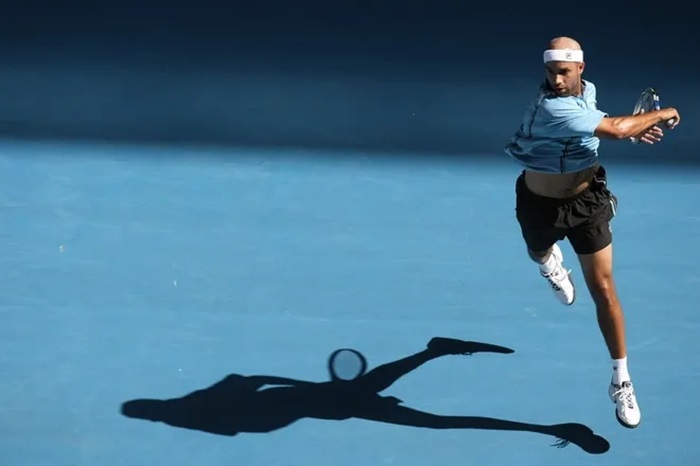
Q: What’s one of the biggest memories you take away from your playing days?
BLAKE: Probably winning a Davis Cup – myself, Bob and Mike Bryan and Andy Roddick together and we felt we were so complimentary of each other. Really being led by Andy Roddick but also all of us contributing on the way to winning the Cup.
Q: What about the frustrations? Maybe considering what you wanted to do and maybe didn’t do or wasn’t able to do?
BLAKE: Every tennis player wishes they could have done better. I wish I had won more matches, and how many matches I won that maybe I shouldn’t have won, so to me it’s almost a feeling of greediness to say I expected to do more. I don’t have any regrets that’s what I always used to say at my press conferences. When I hang up my rackets, I want to know I did my best and I did, so that’s why I feel comfortable and I think it’s also helped me to still be in in the tennis world as they don’t have any bitterness towards it. I don’t have any of the I could have done this, or I should have done that, I should have won that. My career is what it is. Yet there are some matches I could have one and some I could have lost. In the end, as they say about let cords, it’s all going to even out in the end. I am really happy and proud of my career and know I did my absolute best; I don’t have a ton of regrets.
Q: What do you think has surprised you most in the role as a tournament director that you wouldn’t have considered in your playing days?
BLAKE: Well, you think about how much else goes into it. When you’re a player you’re so isolated and in a bit of a bubble and you think the only thing that matters is the players and as a tournament director you realise there is so much more that goes into it. Sponsors, fans, the media, also the players and the players teams and everything else that goes along with the tournament. There so much more involved than I really thought there was.
Q: You have a young family. How have they adapted to you in this role as a tournament director?
BLAKE: So far my kids like me being home and being around. There are eleven and nine now but I think I’m a bit on borrowed time before the elder one starts turning into that dreaded teenager where they’re too cool to hang with mum and dad but right now I’m soaking it all in and knowing it’s very limited. They like having me around but they will be looking in a couple of years for me to get a big coaching job and go out on the road as much as I can.
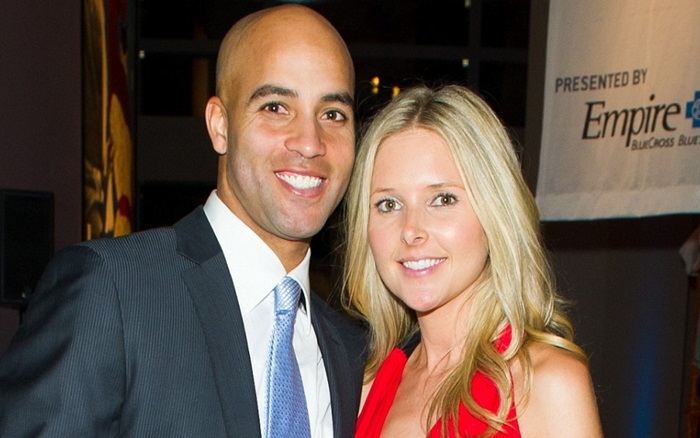
Q. These days there are so many more players at their peaks travelling with families and young children. Could you have done that at your peak?
BLAKE: I think for me it would have been really difficult. It speaks a lot to the players how committed they are to recovery to the way they’re taking care of their bodies as they’re able to play longer. When I was playing it was pretty common to retire around 30 so a lot of people hadn’t started families at that time. Now with players playing into their mid-30s and even to 40 they’re starting their families. I think it’s really great for the ones that can do it and can compartmentalise what they want to do on the court and also recognise there is more to life than just tennis that was difficult for me. I definitely lived a bit in a bubble when I was playing and so focused on tennis. I think it would have been very difficult for me to travel with the family without having a real mindset shift. As soon as my wife had our first daughter, I need to be realistic about my role in that (laughing), but as soon as we had Riley then I felt a complete shift in what was important and my priorities so it made it difficult for me to focus on tennis. I was also injured and my body wasn’t reacting the way it did in my 20s anyway. I think it really would have been an adjustment period.
Q: What do you want to see happen in world tennis? What do you want to see changed or stay the same, and do you feel the sport, as a whole, is in a pretty healthy state or there’s a long way to go?
BLAKE: That’s a good question. What would I like to see changed? One thing I’d like to see, the way the schedule shifts from hard to clay to grass and everything that goes into that For me in the last 15-ish years things have become very homogenised where you don’t have specialists as much anymore. You have players who are a little bit better on clay, a little bit better on hard, but you don’t have the Thomas Musters, you don’t have the Pete Sampras’s who was so good at Wimbledon and the U.S. Open but then could never win the French Open because there was such a difference the way the courts played. I actually liked that adjustment, and that question how are they’re going to adapt? Are they going to start staying back more, are they going to move forward more at Wimbledon? What’s going to happen? I would love to see a bigger gap in the way the courts play. Bring back some really fast courts, bring back some really slow courts like the Hamburg clay when it’s slow and cold and wet. Bring back that real contrast to see styles of play and see differences the way people are playing.
Q. You were in the middle of Simona Halep’s return. Personally, I think it was great to see her get her first wildcard, but you copped some flak on it. Talk about your decision to give Simo a wildcard to Miami this year.
BLAKE: As soon as I saw the ruling we talked to our team immediately. I sent an email saying we are probably going to get a request for a wildcard because she just got cleared. So let’s all take a minute and think about what we would do. What our situation is having a wildcard available at that time if it’s something we want to do. She is a great champion, she is someone who is paid her consequences, you look at the ruling and it says it was accidental. Something she didn’t know she was ingesting. If you do something wrong you pay the consequences and then you move on. You punish someone but then you have to move on, learn from it and get better from there. So, for her, she is addressed that and she’s earned her way back on the WTA tour.
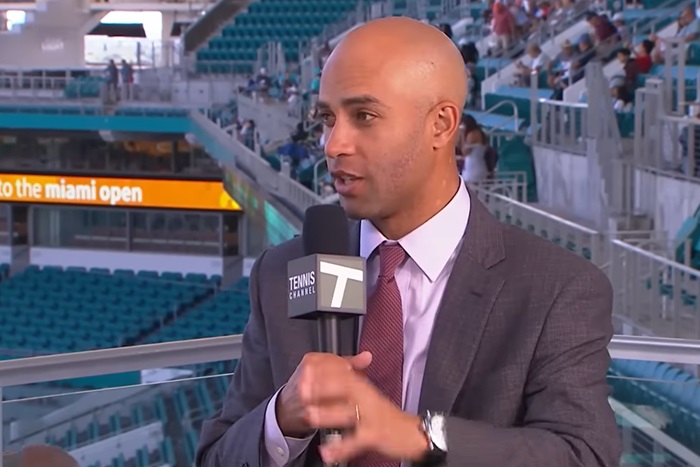
Q. Do you feel that men’s and women’s tennis is in a healthy state?
BLAKE: I think men’s and women’s tennis is in a very healthy state. On the women’s side you’ve got three or four that are extreme contenders for every slam; between Iga, Aryna, Coco and Rybakina, there are really at the top of the game and you have some other contenders just outside of these with Jess Pegula and a few other players, but it’s fun to see because you don’t have one dominating like many years with Serena, but Iga right now is an underrated great in the game because the record she’s putting up at and the slams is remarkable so I think we’re seeing some incredible tennis after the era with Serena. And on the men’s side it’s really fun the Big 3 may be not be the Big 3 anymore – Roger gone, Rafa possibly on his way out, and Novak still being the best in the world, but guys starting to maybe have a little bit more success against him with Carlos, Jannik and those guys out to see who’s going to be that next Big 3. Is it going to be more wide open or are Carlos and Jannik going to start dominating? I think it’s fun. There is always worry when legends are getting towards the end of their careers. I remember very vividly when Pete and Andre were on their way out; what’s going to happen to tennis? Well, this kid named Roger came up, then Rafa came up, then Novak. There’s going to be great tennis. To me it’s fun because you see the game continue to improve. The way Jannik hits the sliding backhand, and the way Carlos has an absolute rocket for a forehand and then has the touch to hit a drop shot at big moments … the game just keeps getting better and it’s fun for me to see.
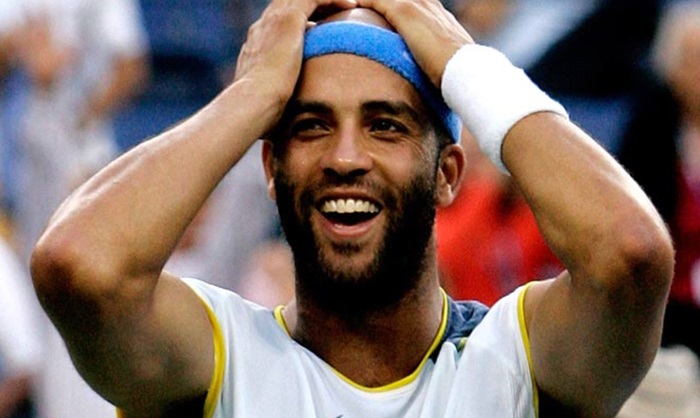
Q: Personally, what do you still want to achieve?
BLAKE: For me, my goals are very different to when I was a player. It was so much about improvement as a player, now it’s about improvement as a person and a human being and being a better dad, learning what I can do on the job as a tournament director. Every day there is always little things you can find to make the tournament better. Whether it’s clearing something out or whether it’s making sure assignors in the right place, or making sure the players get something that meant asking for; should we turn the music down on centre should be keep it higher? Just little things I never would have noticed as a player but now I’m noticing how I can make the players experiences better and all the fans experiences better. One thing I always try to work on. In the grand scheme of things, since I’ve left being a player it’s the big picture thing being a better dad being a better husband and just being a better person.
Q: And finally, a non-tennis question. Tommy Haas was with the One-Handed Backhand Boys with Roger and Grigor. What’s your singing like and if you were to join Roddick, Fish and the Bryan Brothers?
BLAKE: Yes, I saw that. Oh boy it would be awful. The Bryan boys can actually sing, they’re musical. Mardy, surprisingly, and I hate giving him credit, he actually has a pretty good singing voice for someone who doesn’t do it very often – it’s too much country though – and these is awful and mine is awful. Mine would not be good with the one-handed backhand boys. Take Mike and Brian not me. Their dad Wayne has had me out there with the Bryan Bros band and all I do is the maracas, I can shake a maraca, that’s it in the music business.
More information about
Players

Simona Halep

Serena Williams

Aryna Sabalenka

Iga Swiatek

Elena Rybakina

Coco Gauff

Jessica Pegula

Novak Djokovic

Roger Federer

Grigor Dimitrov

Jannik Sinner

Carlos Alcaraz

Mike Bryan

Bob Bryan
 Tennis Legends
Tennis Legends
Tournaments
Australian Open
2026-01-18 / 2026-02-01
US Open
2026-08-25 / 2026-09-13
Roland-Garros
2026-05-24 / 2026-06-07
Wimbledon
2026-06-29 / 2026-07-12
Davis Cup
2025-11-18 / 2025-11-23
BNP Paribas Open - ATP
2026-03-04 / 2026-03-15
Miami Open
2026-03-18 / 2026-03-29
Internazionali BNL d'Italia
2026-05-06 / 2026-05-17
Hambourg
2026-05-17 / 2026-05-23


